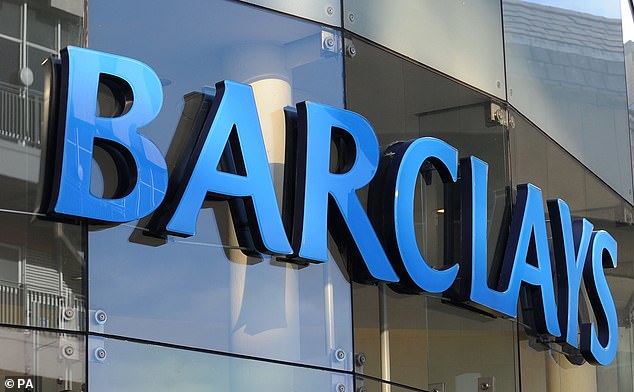- Barclays scraps minimum monthly fee for new and existing customers
- It has also scrapped its £3 share dealing fee for investors
- How does the new deal compare with other DIY investment platforms?
If you open an account using links which have an asterisk, This is Money will earn an affiliate commission. We do not allow this to affect our editorial independence.
Barclays has scrapped the minimum £4 monthly fee for its Smart Investor platform in a bid to simplify its pricing structure.
The platform instead now has one fee for its customers based on a percentage of their investment balances, rather than a fixed monthly charge.
New customers will pay 0.25 per cent on investment balances up to £200,000, and 0.05 per cent above £200,000, regardless of what they choose to invest in.

Barclays Smart Investor platform has scrapped its fund dealing charges for customers
Barclays will also scrap its monthly fee for existing customers, and freeze charges at 0.2 per cent for funds and 0.1 per cent for all other investments.
The maximum monthly fee for existing customers remains capped at £125.
Chris Worle, head of Barclays Smart Investor, said: ‘It’s more important than ever we enable more people in the UK to invest for their future – with inflation still high, and interest rates expected to peak in 2024, investing continues to offer the potential for the best returns over the long term.
‘These changes to Barclays Smart Investor are the start of a raft of improvements we will deliver over the next 18 months to make investing easier, as well as more accessible and rewarding.’
Customers can invest from £50 a month.
Barclays has also made changes to its trading fees, which were previously £6 per deal for UK and US securities and £9 for other international exchanges.
Now all share dealing will cost £6 while fund dealing, which previously cost £3 to buy and sell, is free.
Competition between DIY investment platforms has been heating up over the last few years.
Platforms like Freetrade* and Trading212, which offer customers commission-free share dealing, challenged the larger incumbents.
Last year Hargreaves Lansdown* and Interactive Investor* (ii) both slashed their trading fees. II also expanded its starter plan, which costs £4.99 a month, to customers with assets up to £50,000.
We compare investment platform costs in our guide here.
How competitive is Barclays Smart Investor’s new offer?
Barclays says its new single fee will make it easier for customers to understand what they’re paying, but is it a good deal?
Smart Investor is one of very few platforms offering free fund dealing to its platforms, but share dealing remains at £6 which is higher than other platforms.
Interactive Investor (ii) charges £3.99, iWeb charges £5 and Bestinvest* charges £4.95 per trade.
Freetrade’s free basic plan which grants access to a general investment account, offers commission-free trades and access to over 1,500 global stocks and ETFS, but no funds.
On the face of it, scrapping the £4 minimum monthly fee is a good deal. Barclays says a new customer who has £10,000 invested in funds in an Isa will pay £25 per year, compared to £48 previously.
However, by charging you a percentage of your assets, the more you invest, the more you pay.
II charges a flat fee of £4.99 per month on investments up to £50,000 with UK and US trades costing £3.99.
This means an II customer would pay £60 a year, while a Barclays customer paying 0.25 per cent on £50,000 would pay £125 per year.
Similarly, a customer holding £100,000 in investments would pay £11.99 a month with ii’s Investor plan, or £143.88 a year.
A Smart Investor customer holding £100,000 will pay £20.83 a month, or £250 a year.
However, new Barclays customers with portfolios above £200,000 get a lower customer fee of 0.05 per cent meaning they’d pay £8.33 a month, or £100 a year.
Existing customers will benefit from the £125 monthly cap but won’t get the lower customer fee above £200,000.



